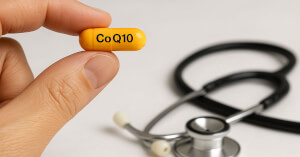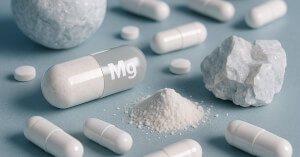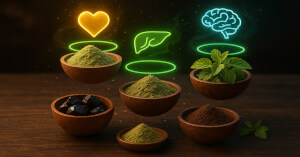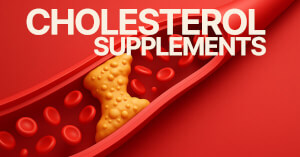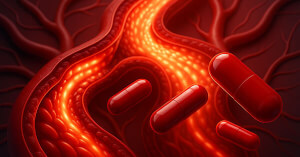
The 12 best supplements that may lower blood pressure
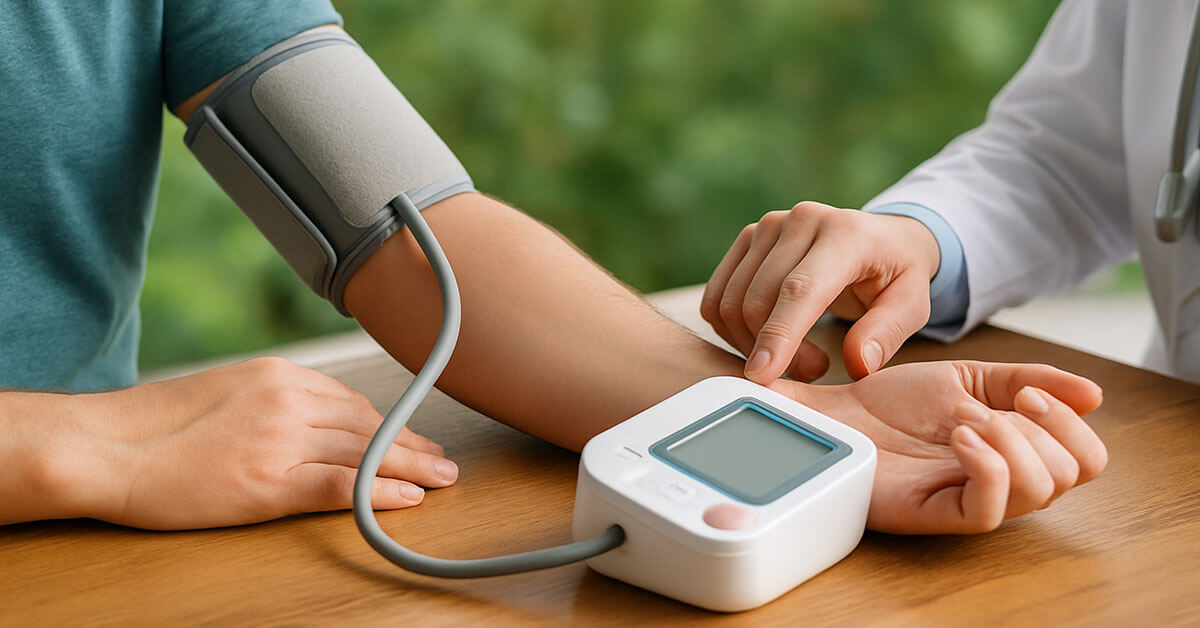
High blood pressure is often called the "silent killer" because it can damage your heart and arteries for years without obvious symptoms. While lifestyle changes like eating less salt, exercising, and managing stress are the foundation, some supplements can also help bring your blood pressure down naturally.
Below are 12 supplements, backed by research, that may help reduce blood pressure levels and support a healthier cardiovascular system.
1. CoQ10 (Coenzyme Q10)
CoQ10 is a powerful antioxidant that your body naturally makes, but levels tend to decline with age or certain medications like statins. It helps your blood vessels relax by improving nitric oxide production, which supports easier blood flow. Studies suggest that regular CoQ10 supplementation can reduce systolic blood pressure by several points, especially in people with hypertension.
📊 Clinical Evidence: A 2022 study reviewed data from several trials and found that people taking CoQ10 had a small but meaningful drop in blood pressure, averaging about 5 points lower systolic.
2. Garlic Extract
Garlic has been used for centuries to support heart health, and modern science confirms its benefits. Compounds in aged garlic extract help your blood vessels dilate and may block the same enzyme that some blood pressure drugs target. Taking garlic regularly can lead to modest but meaningful reductions in both systolic and diastolic pressure.
📊 Clinical Evidence: A 2019 meta-analysis of 12 trials showed that garlic supplements lowered systolic blood pressure by an average of 8.3 mmHg in people with hypertension.
3. Magnesium
Magnesium plays a key role in muscle and nerve function, including the smooth muscles that line your blood vessels. When magnesium is low, your vessels can constrict more easily, which raises pressure. Correcting a deficiency through diet or supplements can help your arteries relax and slightly lower blood pressure.
📊 Clinical Evidence: A 2016 study that combined 34 clinical trials found that magnesium supplements slightly lowered blood pressure, about 2 points systolic and 2 points diastolic.
4. Potassium
Potassium works in balance with sodium to regulate fluid levels in the body. When you get enough potassium, your kidneys excrete more sodium, which can directly lower blood pressure. This mineral is abundant in foods like bananas, avocados, and leafy greens, but some people may need a supplement if their diet falls short.
📊 Clinical Evidence: A 2013 review found that raising potassium intake lowered both systolic and diastolic blood pressure in adults, with the biggest benefits in people who eat a lot of salt.
5. Omega-3 Fatty Acids
Found in fish oil and algae oil, omega-3s are known for their anti-inflammatory and heart-protective effects. They help reduce arterial stiffness and improve the flexibility of blood vessels. Taking at least 2 grams of combined EPA and DHA per day has been shown in clinical trials to gently reduce blood pressure.
📊 Clinical Evidence: A 2022 study reviewed results from dozens of trials and found that about 2 to 3 grams per day of omega-3s (EPA and DHA) lowered blood pressure by a few points.
6. Beetroot
Beetroot is one of the richest natural sources of nitrates, which your body converts into nitric oxide, a molecule that helps blood vessels widen. Drinking beetroot juice or taking a beet supplement can have a measurable impact on blood pressure within hours. Consistent use tends to maintain the benefit over time.
📊 Clinical Evidence: A 2013 meta-analysis of beetroot juice trials found that inorganic nitrate from beetroot significantly lowered systolic blood pressure. Other newer reviews confirm a modest drop of ~3-4 mmHg in systolic pressure with regular use.
7. Hibiscus
The deep red hibiscus flower isn't just beautiful, it's a gentle natural aid for blood pressure. Hibiscus tea or extract acts as a mild diuretic and may relax arteries by blocking an enzyme involved in blood vessel constriction. In small studies, daily hibiscus tea reduced blood pressure almost as much as some prescription medications.
📊 Clinical Evidence: A 2007 randomized trial showed that drinking hibiscus tea lowered systolic blood pressure by about 7 mmHg in people with pre-hypertension or mild hypertension.
8. L-Citrulline
L-Citrulline is an amino acid that your body turns into L-arginine, which in turn helps produce nitric oxide. That nitric oxide allows arteries to relax and improves circulation. Supplementing with citrulline may provide a small but consistent drop in blood pressure, especially in people with mild hypertension.
📊 Clinical Evidence: A 2018 Meta-Analysis of studies found that L-citrulline supplementation produced a modest but significant drop in both systolic and diastolic blood pressure, especially in people with higher baseline pressure.
9. Grape Seed Extract
Rich in antioxidants called proanthocyanidins, grape seed extract supports blood vessel health by reducing oxidative stress and improving endothelial function. Some research has shown a drop in systolic blood pressure after several weeks of use. It's also commonly used for overall cardiovascular protection.
📊 Clinical Evidence: A 2016 meta-analysis of 16 randomized controlled trials showed that grape seed extract reduced systolic blood pressure, especially in younger or obese subjects.
10. Probiotics
It might sound surprising, but gut bacteria can influence blood pressure too. Certain probiotic strains, like Lactobacillus helveticus, produce small peptides that can help relax blood vessels. Taking probiotic supplements for several weeks has been linked to modest reductions in both systolic and diastolic pressure.
📊 Clinical Evidence: A 2023 meta-analysis of randomized controlled trials found that probiotic supplementation led to modest but significant reductions in both systolic and diastolic blood pressure.
11. Melatonin
Melatonin isn't just a sleep aid, it also plays a role in regulating the body's internal clock and blood pressure patterns. Some people with high nighttime blood pressure see improvements when taking melatonin before bed. Better sleep and reduced stress likely contribute to the effect.
📊 Clinical Evidence: A 2019 meta-analysis of randomized trials found that melatonin supplementation modestly reduced nighttime blood pressure in some people, especially those with hypertension.
12. Green Tea Extract
Green tea contains catechins, a group of antioxidants that improve blood vessel function and support fat metabolism. While the blood pressure effect is mild, drinking green tea regularly or taking an extract may help lower pressure slightly over time, particularly in people who also make other healthy lifestyle changes.
📊 Clinical Evidence: A 2019 systematic review found that green tea supplementation over several weeks slightly reduced systolic and diastolic blood pressure in clinical trials.
These natural supplements can complement medical treatment, but they should never replace prescribed medications or regular blood pressure monitoring. Always talk to your healthcare provider before adding any new supplement, especially if you are taking blood pressure drugs or have other heart-related conditions.
Frequently Asked Questions
What is the best supplement for high blood pressure?
There isn't one single “best” supplement, but several options have good evidence behind them. CoQ10, magnesium, potassium, aged garlic extract, omega-3s, beetroot, and hibiscus are among the most studied and effective choices. The right one depends on your health profile and medications.
What supplements should I avoid with high blood pressure?
It's best to avoid supplements that can raise blood pressure or interact with medication. These include high-dose caffeine, yohimbine, licorice root, and stimulant-based pre-workout formulas. Always check with your doctor before adding new supplements if you take blood pressure medicine.
Do blood pressure supplements really work?
Some do, but results are usually modest. Studies show that natural options like garlic, CoQ10, beetroot, and omega-3s can lower systolic pressure by a few points. Combined with diet, exercise, and stress management, they can support long-term heart health.
Does garlic lower blood pressure?
Yes, several clinical studies have shown that aged garlic extract can help reduce systolic and diastolic blood pressure. It works by improving blood vessel flexibility and supporting nitric oxide production, which helps blood flow more easily.
Can magnesium help lower blood pressure?
Yes, magnesium helps relax blood vessels and supports normal nerve and muscle function. People who are deficient in magnesium often see small but consistent drops in blood pressure after supplementation.
Are natural supplements safe to take with blood pressure medication?
Many are safe, but some can interact with medication. Always talk with your healthcare provider before combining supplements with prescribed blood pressure drugs to avoid unwanted effects or dosage interference.
This article was originally published on Stackbb, your trusted source for science-based supplement guides.
